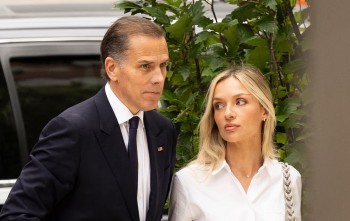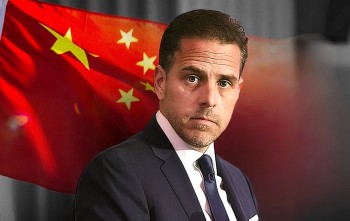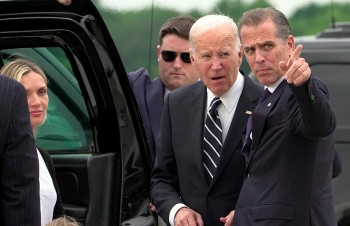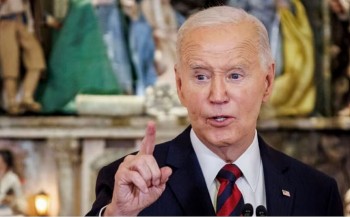Who Got Biden’s Pre-Emptive Pardons? Milley, Fauci, and Jan. 6 Figures Revealed
The decision comes as Biden aims to shield public officials and lawmakers from what he described as “unjustified and politically motivated prosecutions.” The move underscores Biden's commitment to defending the integrity of democratic institutions and the public servants who uphold them.
Why These Pardons MatterEach of the pardoned individuals faced threats and potential prosecution not for wrongdoing, but for carrying out their duties in highly polarized environments. Biden’s decision to issue these pardons not only safeguards these individuals but also sets a precedent for defending public servants who act in good faith. The recipients—General Milley, Dr. Fauci, and members and witnesses of the January 6 Committee—represent the resilience and dedication of those who serve in public office and leadership roles. Their pardon reflects Biden’s commitment to protecting the integrity of public service and rejecting the politicization of justice. |
 |
| Biden issues preemptive pardons for Fauci, Milley, Jan. 6 committee members |
A Strong Defense of Public Service
President Biden's announcement was accompanied by a clear and forceful statement. “Our nation relies on dedicated, selfless public servants every day. They are the lifeblood of our democracy,” he said. Biden emphasized that these individuals had faithfully discharged their duties despite facing undue threats, harassment, and intimidation.
This pardon, he stated, was necessary to safeguard democracy and protect those who were instrumental in addressing some of the nation’s most contentious and challenging issues in recent history.
Who Are the Recipients of the Pardons?
President Biden's pre-emptive pardons were issued to three key groups of individuals, each of whom has played a significant role in recent U.S. history. The recipients include General Mark Milley, Dr. Anthony Fauci, and members of the January 6 Congressional Committee, along with witnesses who testified before the committee. Let’s delve deeper into their backgrounds, their contributions, and why they were targeted.
1. General Mark Milley: The Steadfast Guardian of Democracy
General Mark Milley served as the Chairman of the Joint Chiefs of Staff from 2019 to 2023, a tenure marked by unprecedented political turbulence. Milley became a central figure during the final months of President Trump’s administration when fears arose about potential misuse of military power. To prevent unauthorized actions, Milley reportedly took steps to reassure both domestic and international leaders about the stability of U.S. governance.
-
Why Was Milley Targeted? Milley faced accusations from some political factions that he overstepped his authority by engaging directly with military officials to ensure the peaceful transition of power. Critics labeled his actions as insubordinate or even treasonous, though many saw them as necessary to uphold democratic principles during a volatile period.
-
Why Did Biden Pardon Him? Biden’s pardon recognizes Milley’s efforts to preserve constitutional order and maintain stability during one of the most divisive moments in modern U.S. history. It sends a clear message that military leaders acting in defense of democracy should not be vilified or prosecuted for their service.
2. Dr. Anthony Fauci: The Face of America’s Pandemic Response
Dr. Anthony Fauci, the nation’s leading infectious disease expert, became a household name as the face of the U.S. response to the COVID-19 pandemic. Fauci provided guidance on public health measures such as masking, social distancing, and vaccination efforts. While he earned widespread praise for his leadership, Fauci also became a lightning rod for criticism, particularly among those who opposed pandemic restrictions.
-
Why Was Fauci Targeted? Fauci faced relentless attacks from certain political groups, with some accusing him of mishandling the pandemic or even questioning his motives and credibility. Conspiracy theories about the origins of the virus and Fauci’s role in funding research added fuel to the fire, leading to threats of investigations and legal action against him.
-
Why Did Biden Pardon Him? Biden’s pardon of Fauci serves as an acknowledgment of his unwavering dedication to public health amid unprecedented challenges. It shields Fauci from what Biden described as “unjustified and politically motivated prosecutions,” ensuring that science and public health leadership are protected from partisan attacks.
3. Members and Witnesses of the January 6 Congressional Committee
The bipartisan January 6 Congressional Committee was established to investigate the events surrounding the 2021 attack on the U.S. Capitol. The committee included prominent lawmakers and interviewed hundreds of witnesses, compiling a comprehensive report on the causes and consequences of the insurrection. Their work played a critical role in uncovering the truth and holding individuals accountable.
-
Who Are the Pardoned Individuals? The recipients of Biden’s pardon include:
- Committee Members: Key lawmakers, such as Representative Bennie Thompson (Chair) and Representative Liz Cheney (Vice Chair), who spearheaded the investigation.
- Witnesses: High-profile figures like former White House aides, election officials, and law enforcement leaders who provided testimony despite facing threats and intimidation.
-
Why Were They Targeted? Many members and witnesses became targets of political retaliation, with some lawmakers threatening to investigate or prosecute them if power shifted. They faced accusations of partisanship, as well as threats of legal action for their roles in the investigation.
-
Why Did Biden Pardon Them? By issuing pre-emptive pardons, Biden ensures that the individuals involved in the committee’s work are not punished for fulfilling their duty to the country. The pardons protect them from politically charged legal actions and underscore the importance of their contributions to preserving democracy.
Motivations Behind the Pardons
Preventing Political Retaliation
One of the key drivers of Biden’s decision appears to be his concern over the rise of politically motivated actions against public officials. The pardon comes amid increasing polarization in U.S. politics, where legal actions and threats of prosecution have been used as tools to target political opponents and dissenting voices.
Biden’s move signals a rejection of this trend, aiming to depoliticize the justice system and protect individuals who have been targeted for their public service.
Strengthening Democratic Norms
The pardons are also a symbolic gesture to reaffirm democratic norms and principles. By shielding individuals like Milley, Fauci, and the January 6 committee members, Biden emphasizes the importance of protecting those who work within democratic frameworks, even when their decisions or actions are controversial.
A Response to Escalating Threats
Public servants have increasingly faced threats, harassment, and attempts at intimidation. From Fauci receiving death threats to Milley being accused of treason, the risks associated with serving in government roles have escalated dramatically. Biden’s decision underscores the need for leaders to stand by those who dedicate their lives to public service.
Reactions to the Pardons
Supporters Praise the Move
Supporters of Biden’s decision argue that the pardons were necessary to prevent the erosion of democratic institutions. Legal experts and advocates for public servants applauded the move as a vital step in ensuring that individuals can serve without fear of retaliation.
“Biden’s pardons send a strong message that public officials should not be punished for doing their jobs with integrity,” said constitutional law professor Linda Beasley. “It’s a necessary line of defense against the politicization of justice.”
Critics Call It Overreach
On the other hand, critics have characterized the pardons as overreach, accusing Biden of shielding allies from accountability. Opponents argue that the pardons undermine the judicial process and suggest that investigations should have been allowed to proceed without interference.
Prominent figures in the opposition party labeled the move as a political maneuver to protect individuals who, they claim, overstepped their authority.
The Public Reaction
Public response has been mixed, reflecting the broader polarization in American society. While some view the pardons as a bold step in defending democracy, others see them as a controversial use of presidential power. Social media platforms have become a battleground for heated debates over the issue.
The Larger Implications
Biden’s pardons go beyond protecting specific individuals. They raise critical questions about the balance of power, the role of public servants in a democracy, and the need to shield these individuals from undue political influence.
- Impact on Future Administrations: The pardons set a precedent for how public officials may be protected from political retaliation. It remains to be seen whether this decision will encourage other administrations to take similar steps or provoke backlash.
- Strengthening Accountability: By affirming his commitment to protecting public servants, Biden has sent a message about the importance of accountability and integrity in government roles.
Biden Sets Record for Presidential Pardons and CommutationsPresident Joe Biden has established a historic milestone, issuing more pardons and commutations than any U.S. president in history. This sweeping use of presidential clemency has focused largely on addressing nonviolent offenses and systemic issues in the criminal justice system, alongside a controversial pardon of his son, Hunter Biden. By the Numbers: A Record-Breaking Use of Clemency Mass Commutations for Nonviolent Drug Offenders: On Friday, Biden announced the commutation of sentences for nearly 2,500 individuals convicted of nonviolent drug-related offenses. This move is part of his broader strategy to tackle the lingering effects of harsh sentencing laws from past decades. Pandemic-Related Clemency: Last month, the president commuted the sentences of approximately 1,500 people who had been released from prison and placed in home confinement during the COVID-19 pandemic. Additionally, he issued 39 pardons to Americans previously convicted of nonviolent crimes, further highlighting his focus on rehabilitation and second chances. Federal Death Row Commutations: In a historic decision, Biden commuted the sentences of 37 out of 40 individuals on federal death row, converting their punishments to life imprisonment. This move underscores his opposition to capital punishment, a stance that has defined his administration’s approach to criminal justice reform. Hunter Biden’s Controversial Pardon One of the most debated aspects of Biden's clemency actions was his decision to pardon his son, Hunter Biden. The pardon not only addressed Hunter’s convictions for federal gun and tax violations but also covered any potential federal offenses committed over an 11-year period. The president reportedly made this decision to protect his son from what he described as politically motivated prosecutions by allies of former President Donald Trump. |
In Conclusion
President Joe Biden’s decision to issue pre-emptive pardons for General Mark Milley, Dr. Anthony Fauci, and members of the January 6 Congressional Committee reflects his unwavering support for public servants and democratic institutions. By shielding these individuals from politically motivated threats and potential prosecutions, Biden seeks to preserve the integrity of public service and reinforce the nation’s democratic principles.
While the move has sparked debate, it underscores a critical issue in contemporary U.S. politics: the need to protect public servants from harassment and retaliation. As Biden himself stated, “They do not deserve to be the targets of unjustified and politically motivated prosecutions.” Ultimately, these pardons may serve as a cornerstone in the ongoing battle to safeguard democracy in an increasingly polarized landscape.
 Who is Hunter Biden: Early Life, Family, Career, and Net Worth Who is Hunter Biden: Early Life, Family, Career, and Net Worth Hunter Biden, son of U.S. President Joe Biden, has been a polarizing figure in American politics and media. From his troubled past to his career ... |
 Hunter Biden Scandal: Allegations, Controversies, and Trump's Reactions Hunter Biden Scandal: Allegations, Controversies, and Trump's Reactions President Biden pardoned his son, Hunter Biden, after the first son was convicted in two separate federal cases earlier this year. |
 Biden's Historic Clemency: Counter Backlash from Pardon of Hunter Biden Biden's Historic Clemency: Counter Backlash from Pardon of Hunter Biden Biden's historic clemency for 1,500 inmates may aim to counter backlash from his controversial pardon of Hunter Biden, sparking debate over motives and fairness. |
 Who are the 39 People Biden Pardoned: Names, Ages, Locations, and Offenses Who are the 39 People Biden Pardoned: Names, Ages, Locations, and Offenses Here are the 39 people who received pardons, with names, ages and locations provided in a White House. |























